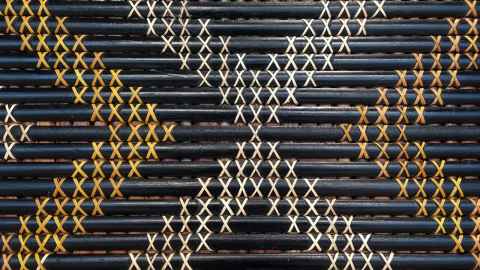Three major events this week signalled the public role of Waipapa Taumata Rau, University of Auckland, in bringing expertise and perspective to respond to major questions faced by contemporary society.

The University was host to the inaugural Constitutional Kōrero, to the first in a series of symposia on Mātauranga Māori, and the Research as Ceremony panel kōrero, looking at Indigenous worldview research.
Close to 400 experts from around the world came together for the Constitutional Kōrero, a national wānanga to discuss and debate options for constitutional transformation, to realise Māori rights within te Tiriti o Waitangi, He Whakaputanga and the UN Declaration on the Rights of Indigenous Peoples (21-23 November).
The conference was organised by Auckland Law School academic Dr Claire Charters (Ngāti Whakaue, Tūwharetoa, Ngāpuhi, Tainui) who said in her opening address: "Here, we will ask ourselves what would a te Tiriti-based Aotearoa New Zealand constitution look like and how do we realise it?"
The kōrero included experts in state and Indigenous constitutions, including from Chile, Mexico, Canada, the US, Vanuatu, Australia, Japan, the Philippines, Tanzania, Greenland, Peru, Sweden, and Norway, together with some of Aotearoa's thought leaders on tino rangatiratanga (Māori sovereignty).
We have a diverse range of experts - university scholars, community experts and ringa toi. They are all contributing to the revitalisation and growth of Mātauranga for future generations
Prof Vice-Chancellor Māori, Te Kawehau Hoskins.
The University is also hosting Te Ao Toi (Māori arts) and creative expression, the first in a series of events exploring different aspects of Mātauranga Māori, or Indigenous knowledge (24 November).
Te Ao Toi will feature speakers who are experts in iIndigenous art history and architecture; moko signatures and iwi histories and traditions to whakairo (carving), weaving, multimedia installation, visual arts, photography, and the revival of Māori aute (tapa).
Ngā Toi are central to Māori cultural and community identity, narrative expresssion and well-being, says Pro Vice-Chancellor Māori, Te Kawehau Hoskins.
"We have a diverse range of experts - university scholars, community experts and ringa toi. They are all contributing to the revitalisation and growth of Mātauranga for future generations.
"The symposium presents research, mātauranga and practice on performance, adornment, the recreation of te rā (waka sail), the revitalisation of aute-making in Aotearoa, and an exploration of toi concepts."
Speakers will include the University's Associate Professor Ngarino Ellis, Te Ahukaramū Charles Royal, Bernard Makoare, Maureen Lander MNZM, Rongomai Grbic-Hoskins, Makareta Janke and Nikau Hindin.
Following the symposium, the University will host the 'Research as Ceremony' panel (25 November) which will feature local and global researchers sharing their reflections and insights into the way they conduct research within Indigenous worlds and the sacred process of research.
Indigenous researchers are knowledge seekers who work to progress Indigenous ways of being, knowing and doing in a modern and constantly evolving context, says Opaskwayak Cree scholar, Dr Shawn Wilson.
Dr Wilson has spent much of his life straddling the Indigenous and mainstream world. "Most of my life these days is spent teaching other Indigenous knowledge seekers (and my kids) how to accomplish this balancing act while still keeping both feet on the ground."
As the author of the book, Research is Ceremony, Dr Wilson will share his reflections on his research practice with First Nations people from Australia and Canada.
Dr Albert Refiti (AUT), a research leader in the field of Pacific architecture, will share kōrero about Pacific concepts of space, and how Pacific people can create new models of working and notions of place. Māori Studies doctoral student Te Kapua O'Connor will talk about researching his co-authored book, A Fire in the Belly of Hineāmaru, and Edmond Fehoko will talk about changing the narrative around the health and wellbeing of Pacific communities. The event will be MCd by Atlantic Fellow Kaye-Maree Dunn who will also share reflections on her Indigenous banking and Māori tech mapping research.






